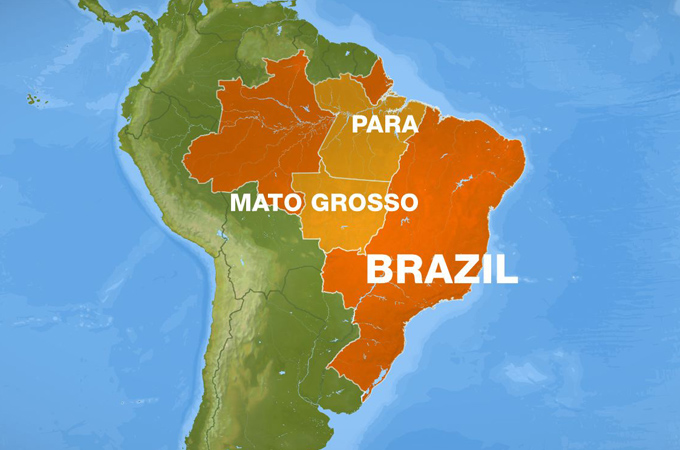Brazil Amazon destruction rises 28 per cent
Extensive farming and soya-bean production in two states cited as reason for deforestation increase over the past year.

Deforestation in Brazil’s Amazon region has risen 28 percent over the past year, the country’s environment minister says.
Making the announcement in the capital Brasilia on Thursday, Izabella Teixeira said she was calling an emergency meeting to try to remedy the situation.
Keep reading
list of 4 itemsCanada wildfires spur evacuation orders, warnings: What you need to know
Evacuation orders issued as wildfire grows near Canada’s Alberta oil patch
Energy summit seeks to curb cooking habits that kill millions every year
“We confirm a 28 percent increase in the rate of deforestation, reaching 5,843sq km,” she said quoting provisional statistics for August 2012 through July this year.
Extensive farming and soya-bean production in the northern state of Para and the central-western state of Mato Grosso were key factors behind the rise, Teixeira said, citing increases for the two states of 37 and 52 percent respectively.
Teixeira said she would meet Amazon regional environment secretaries of state next week to demand explanations and measures to deal with the situation on her return from a UN climate change summit in Warsaw.
Authorities scolded
Teixeira also criticised the apparent ineffectiveness of monitoring by federal state authorities.
“The Brazilian government does not tolerate and does not accept any rise in illegal deforestation,” she said, insisting that the country was firmly committed to drastically reducing deforestation.
Although large in percentage terms, the rise in absolute terms is the second smallest in recent years as 2012 saw 4,571sq km of deforestation, following an even more disturbing 6,418sq km in 2011.
 |
The worst year on record was 2004, when 27,000sq km of forest was lost.
Environmentalists blame the increase on a loosening of Brazil’s environmental laws. They also say that the government’s push for big infrastructure projects like dams, roads and railways is pushing deforestation.
Paulo Adario, coordinator of Greenpeace’s Amazon campaign, said it was scandalous that there was such an increase in the destruction.
“The government can’t be surprised by this increase in deforestation, given that their own action is what’s pushing it,” he said.
“The change in the Forest Code and the resulting amnesty for those who illegally felled the forest sent the message that such crimes have no consequences.”
Brazil, a major global agricultural producer, is caught between environmental pressures and the interests of large-scale farmers.
The country’s forestry code requires landowners in the Amazon to devote 80 percent to native forests. But enforcement has been lax.